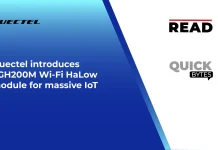Renovion, Inc. announced that the U.S. Food and Drug Administration (FDA) has granted Fast Track designation to ARINA-1 for the prevention of bronchiolitis obliterans syndrome (BOS) progression in adults with a bilateral lung transplant. The FDA grants Fast Track designation to facilitate the development and expedite the review of medicines to treat serious conditions and fill an unmet medical need. It allows for rolling submission of regulatory documentation to the FDA resulting in faster regulatory review. It is intended to expedite the review of promising medicines to facilitate a faster path to patients with a serious, unmet need.
Renovion previously received a Study May Proceed letter for their ALOFT study to evaluate ARINA-1 in preventing lung function (FEV1) decline in adults with a bilateral lung transplant who have shown early signs of BOS. BOS is the main factor contributing to the 45% mortality rate at 5 years post-transplant in people with a lung transplant, and there are no FDA-approved treatment options for BOS. Renovion will focus on enrolling adults with a bilateral lung transplant greater than one-year post-transplant who have early signs of BOS.
Also Read: MIM Software Becomes Majority Vendor for RPT in Centers of Excellence
Renovion plans to utilize the rolling submission of the Fast Track designation to expedite NDA submission based on the results from the ALOFT study to help people with early BOS who are in dire need of safe and effective therapies to prevent BOS progression and further lung function decline.
“We are pleased with the FDA’s decision to grant Fast Track designation for ARINA-1 in bilateral lung transplant patients with early BOS, and we look forward to enrolling our first patient in the next few weeks,” said Marty Zamora, MD, Chief Medical Officer at Renovion. “This allowance complements our orphan drug status in lung transplant and current focus on enrollment at lung transplant centers across the US in the ALOFT trial. This advances our clinical strategy to develop therapies for patients with a critical unmet need. The safety of this drug to date and the efficacy in this trial can make a tremendous difference in the lives of patients with limited or no treatment options.”
SOURCE: Businesswire






